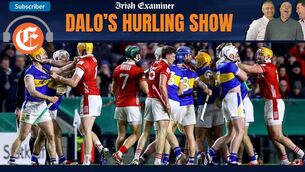As it was in the beginning, is now...
Ah yes, the doom-sayers will be out in force proclaiming hurling is in crisis and something must be done, and soon.
Hurling is not in crisis. Or at least no more so than it ever was. Long before the GAA was born, hurling or its variations was confined to just a few specialised areas of the country. As it was then, so it is now. Go back to the early years of the GAA and you’ll find Thurles (Tipperary), Tulla (Clare), Meelick (Galway), Aghabullogue (Cork), Ballyduff (Kerry), Kilfinane (Limerick), Tullaroan (Kilkenny), teams from Wexford, Laois, Dublin, all of which still retain those hurling roots. Even Donegal made it into the All-Ireland list, a semi-final appearance in 1923 (lost to Limerick, 7-4 to 0-1), and there is still at least one strong and dedicated hurling club in Donegal to this day, in Burt.










